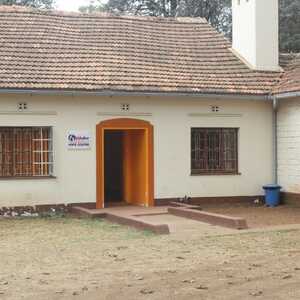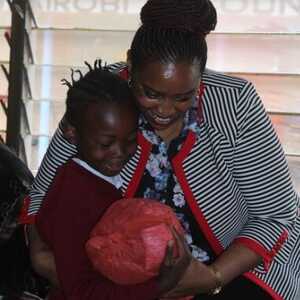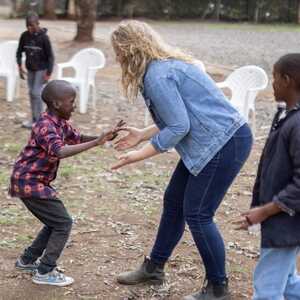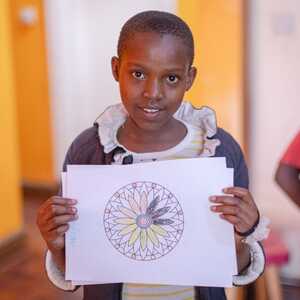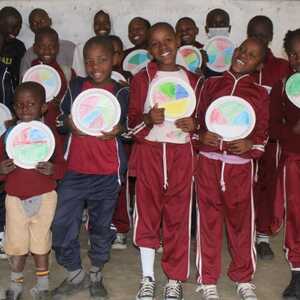Nairobi Slums Community Hope Centre
Nairobi Slums Community Hope Centre
Our Community Hope Centre provides refuge, hope and support to vulnerable children and their families in Africa's largest slum region.
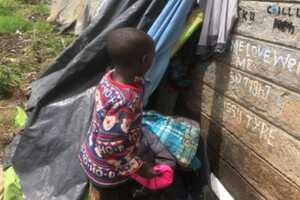
About 2.5 million people live in Nairobi’s three main slums – Kwangware, Kangemi and Kibera, by far the largest in all of Africa. Crammed in squalid living conditions, most live in extreme poverty, earning less than $1 per day. Unemployment rates are high. Many live with HIV, especially adolescents. Diseases caused by poor hygiene are prevalent, with raw sewage being commonplace. A great majority lack access to basic services, including electricity, running water, and medical care.
60% of families are led by single women (many teenagers), many having been abused physically and/or emotionally. School drop out rates are high, especially amongst girls of a menstrual age who have no access to sanitation materials. Girls are especially vulnerable to physical and sexual assault. Drug abuse is prevalent in all age groups, typically as a means to ‘numb’ life itself.
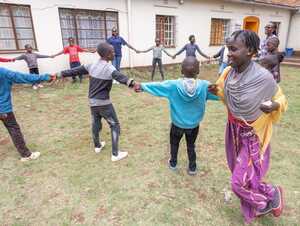
Located in the middle of Nairobi’s three main slums, our Community Hope Centre provides a base where we can reach out to these families (it was provided to us by a local partner church which is also based there). In particular, school drop-outs referred to us by partner schools.
Here we serve some of the most vulnerable families, where the children can come and have fun, learn about Jesus, receive education support, love, trauma counselling and Christian care.
We work closely with local schools and churches, so the children can get their education back on track, which can be used to break the long-term cycle of poverty and hopelessness.
We also work especially closely with their families - typically single mums who themselves have been victims of abuse and poor parenting - training and empowering them in livelihoods, parenting skills, trauma care, spiritual input and more.
- Holistic care for traumatised children and their families referred to us by local schools, authorities and churches.
- This includes trauma care and spiritual input, family strengthening, livelihood and education support, etc.
- We also train local partners and church leaders in trauma care and safe child practices, especially within families, with a view to them training others.
- Parental support through church workshops and events.
- Trauma care training for teachers in partner schools, including workshops.
- Removing barriers to school attendance including helping with fees, transport, and homework clubs.
- Training and advocacy directed at local authorities on how best to care for children in slums and how to train others.
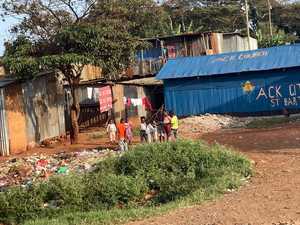
The average slum 'home' in Kibera is about 3.6 metres squared, with no basic amenities such as running water or electricity.
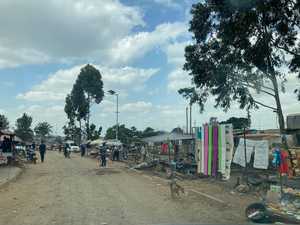
Over 56% of Nairobi's population live in slums. That's over 2.5 million people, one of the highest ratios in the world.
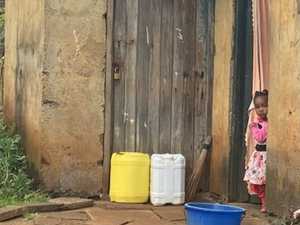
Living in such dreadful conditions results in all sorts of social and emotional issues for children, including poor mental health.
